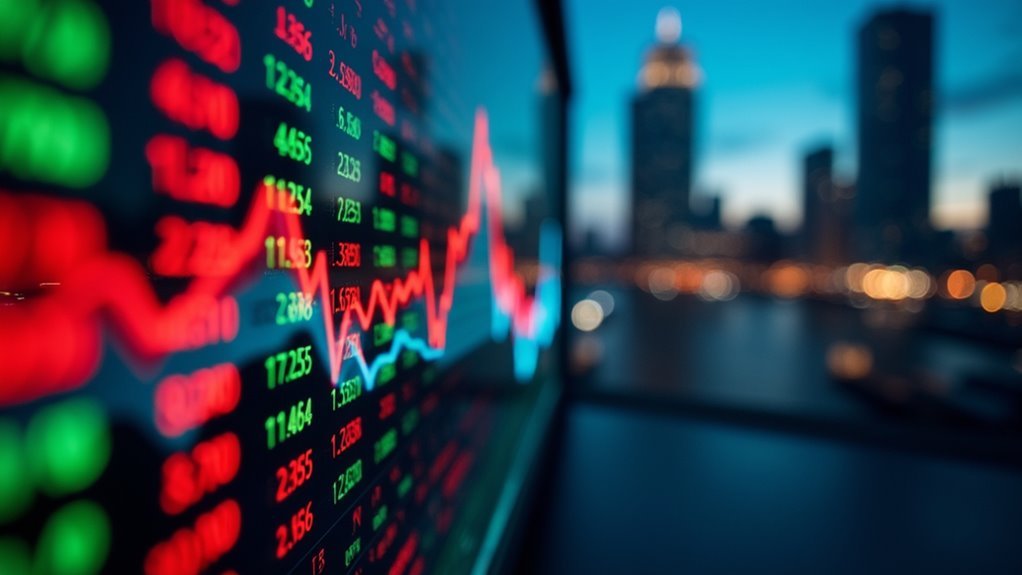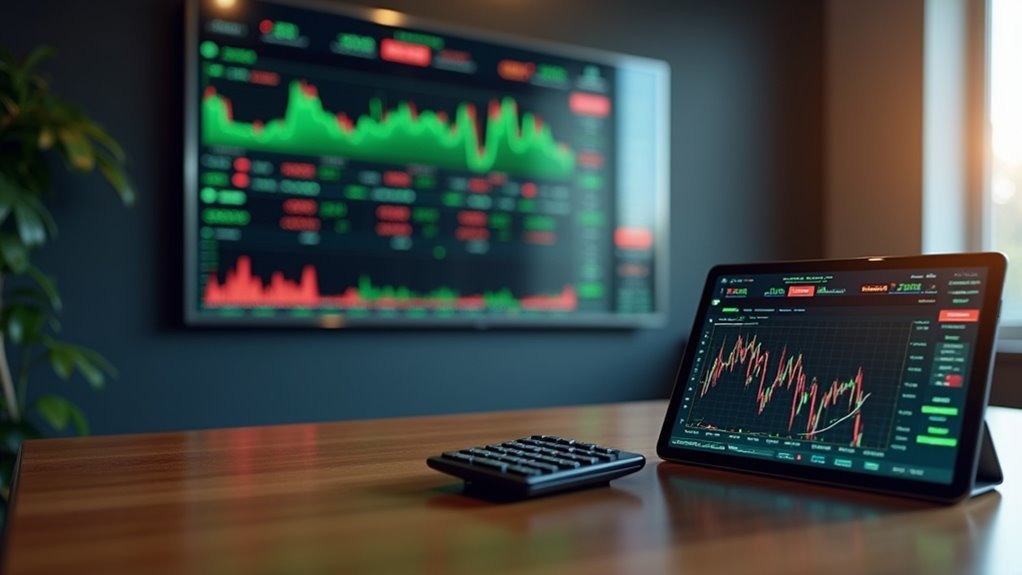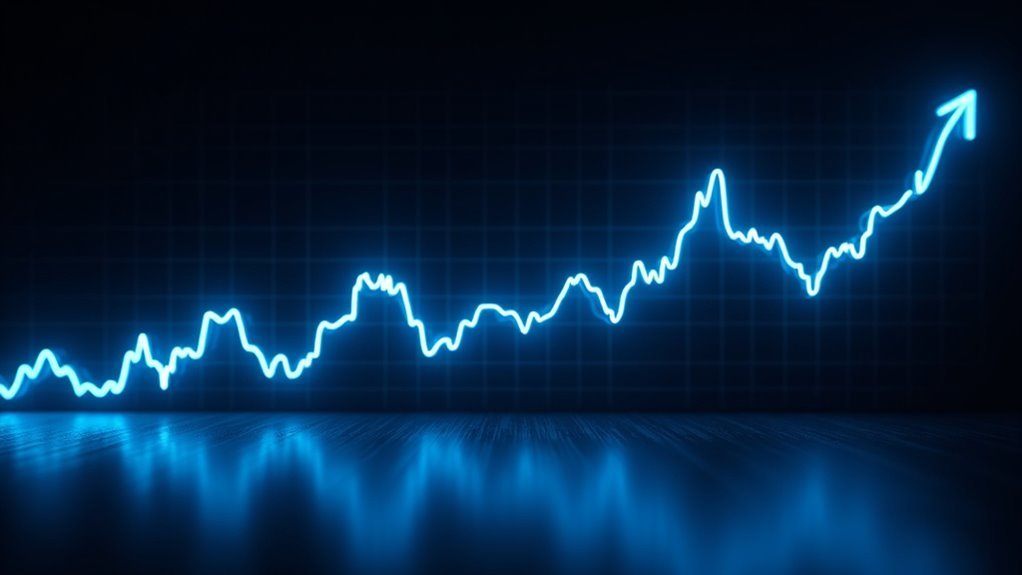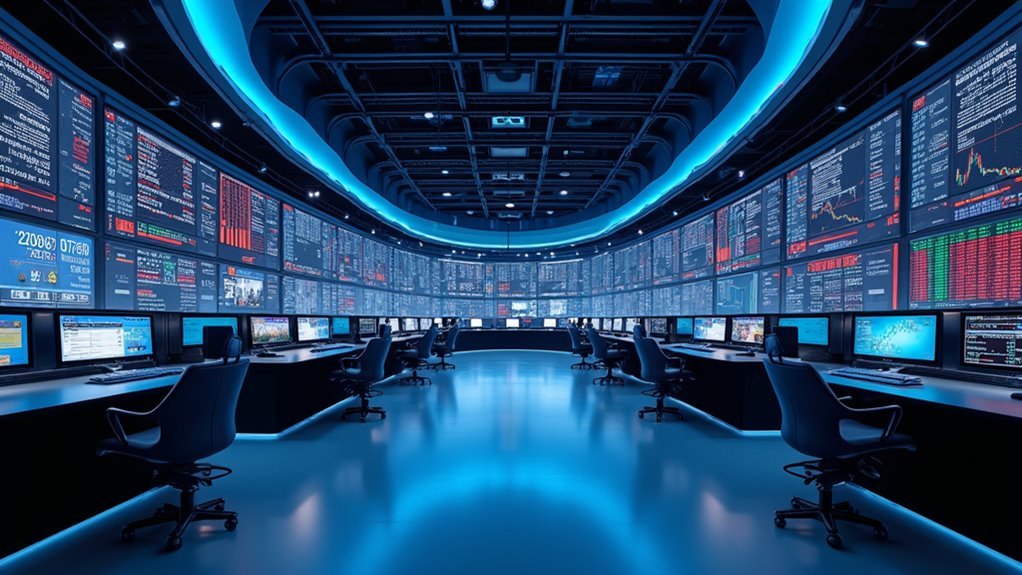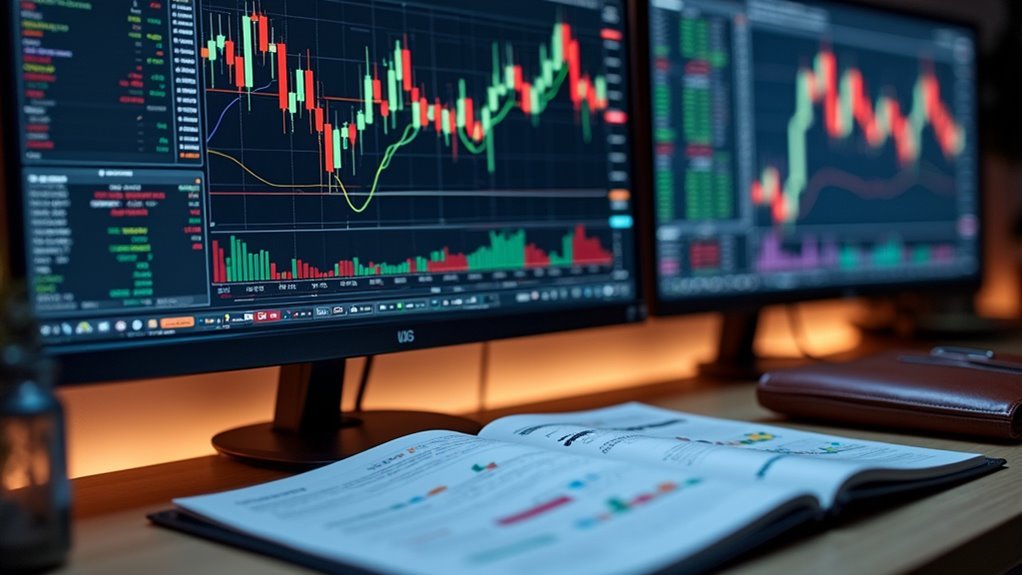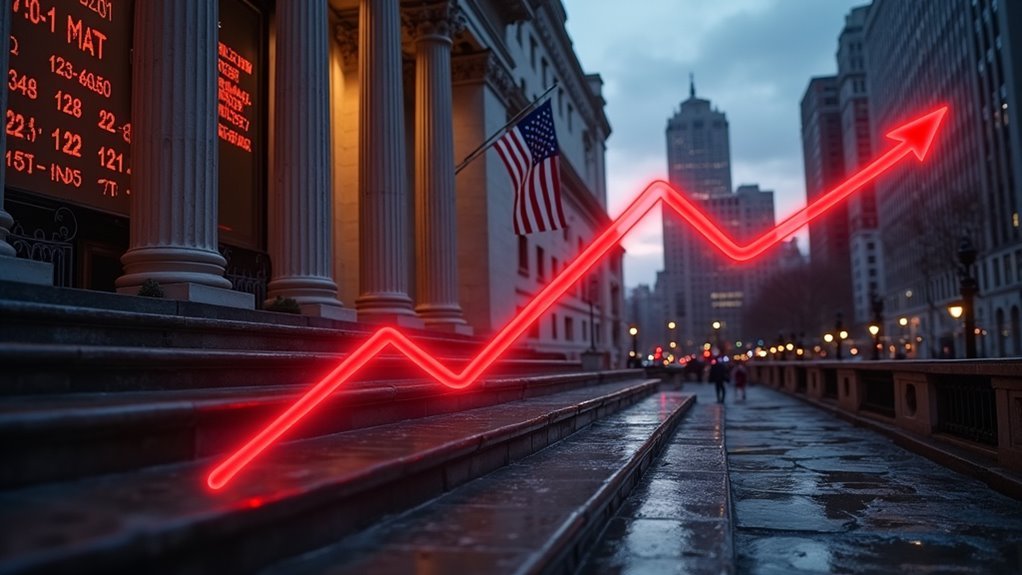Stock prices dance to the tune of supply and demand, but it’s not that simple. Company performance, economic indicators, and global events all push and pull prices like a chaotic game of tug-of-war. When more people want to buy than sell, prices climb. Bad earnings? Watch them plummet. Even tweets from CEOs can send stocks soaring or crashing. Behind it all, human psychology – fear, greed, and hype – drives the market’s wild swings. Understanding these forces reveals the method behind the madness.
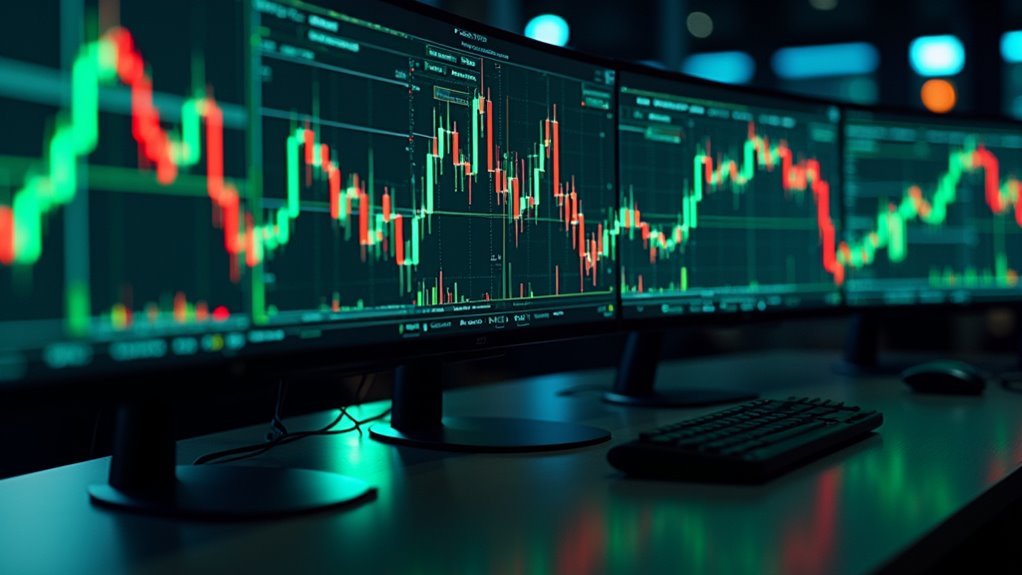
While many investors dream of cracking the stock market’s code, the reality is far messier. Stock prices dance to the tune of supply and demand – it’s that simple, and that complicated. When buyers outnumber sellers, prices climb. When sellers flood the market, prices tank. Welcome to Economics 101, where nothing ever quite works like the textbooks say it should.
Behind these price swings lurks the beating heart of company performance. Earnings reports can send stocks soaring or crashing in minutes. A hot new product launch? The market gets giddy. A CEO suddenly “retiring” to spend more time with their family? Investors run for the hills. The strength of profit margins often determines whether investors stay committed for the long haul. Companies can influence their stock prices through stock buybacks, which decrease the total supply of shares available. It’s remarkable how quickly Wall Street can fall in and out of love with a company.
Wall Street’s fickle heart beats to the rhythm of earnings calls, product launches, and CEO musical chairs.
The broader economy plays puppet master too. GDP growth, inflation rates, and interest rate decisions from suited bureaucrats pull invisible strings. When unemployment numbers drop, the market usually perks up. When consumer spending tanks, so do stock prices. It’s like a giant economic game of dominos, where one piece falling can knock down entire sectors. A sustained decline exceeding 20% signals a bear market phase, often reflecting deeper economic troubles.
Global events love to throw wrenches into the works. Geopolitical tensions, natural disasters, and trade spats don’t care about your investment strategy. Neither do currency fluctuations, which can turn international stocks into a game of financial pinball.
And let’s not forget industry trends – entire sectors can become dinosaurs overnight when technology decides to reshape the playing field.
Perhaps the most fascinating force is plain old human psychology. Fear and greed drive the market’s daily drama, while social media chatter can turn obscure stocks into overnight sensations. Technical analysts pore over charts like ancient prophecies, hunting for patterns in price movements and trading volumes.
Market momentum becomes a self-fulfilling prophecy as traders chase trends up and down.
In the end, stock prices reflect a messy collision of rational analysis and irrational behavior, of cold hard numbers and raw human emotion. It’s part science, part psychology, and part pure chaos.
Frequently Asked Questions
How Do I Know When Is the Best Time to Sell My Stocks?
Professional investors watch technical indicators like RSI and MACD for overbought conditions.
They analyze fundamentals – earnings misses, lost contracts, management changes.
Smart money takes profits when stocks hit targets or gain 20-30% quickly.
Economic factors matter too. Rising rates, sector rotations, bear markets – they all impact timing.
But nobody gets it perfectly right. Markets are unpredictable. Perfect timing‘s a myth.
What Role Do Social Media Trends Play in Modern Stock Price Movements?
Social media has transformed stock trading, big time.
Platforms like Reddit and Twitter now move markets in minutes – just ask GameStop investors who rode the WallStreetBets rocket.
Elon Musk’s tweets alone can swing Tesla’s price by billions. It’s wild out there.
Meme stocks surge on viral trends, not fundamentals. Traditional analysts hate it, but social sentiment now drives real price action.
Welcome to investing in 2024.
Can Stock Prices Be Manipulated by Large Institutional Investors?
Large institutional investors absolutely can and do manipulate stock prices.
Through coordinated trading, massive volume dumps, and algorithmic strategies, they move markets at will. It’s not even particularly subtle.
Front-running, “painting the tape,” and exploiting dark pools are common tactics.
Regulators try to catch them, but these firms are always one step ahead.
Small investors? They’re just along for the ride.
How Do International Political Events Affect Domestic Stock Prices?
International political events hit stock prices like a tsunami. Markets hate uncertainty, and global drama brings plenty of it.
War? Stocks tank. Trade tensions? Tech stocks wobble. Political upheaval? Entire sectors shift overnight.
The domino effect is real – what happens in Beijing or Moscow ripples through Wall Street in seconds. Safe-haven assets surge while volatile stocks plummet.
It’s a knee-jerk reaction that can last days or months.
Why Do Some Stocks Recover Quickly After Market Crashes While Others Don’t?
Stock recovery after crashes comes down to fundamentals – plain and simple. Companies with strong balance sheets, low debt, and consistent profits bounce back faster. Period.
Defensive sectors like utilities typically recover quicker than cyclical industries. Institutional backing helps too – big money means faster rebounds.
Market sentiment plays favorites – well-known brands and stocks with positive analyst coverage tend to recover sooner. Some companies just can’t handle the punch.
